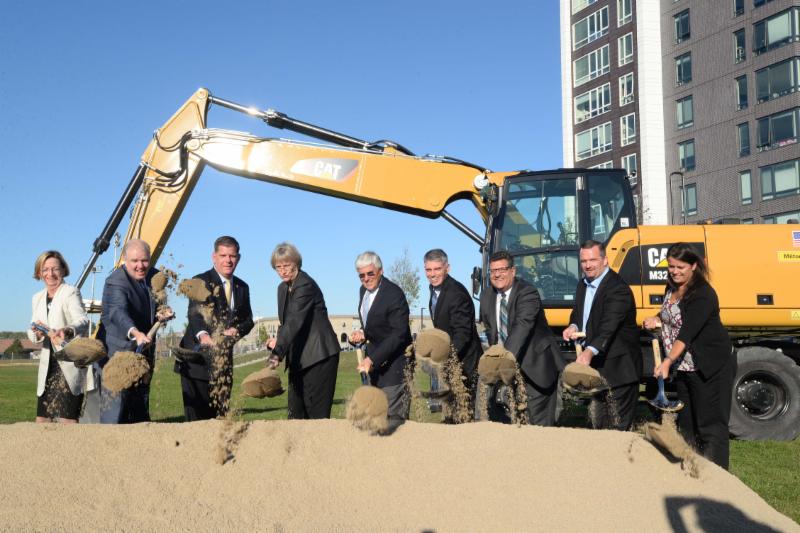PHARMACEUTICAL COMPANY MYLAN TO PAY $20.3 MILLION FOR UNDERPAYING REBATES ON EPIPENS FOR MASSHEALTH MEMBERS
Part of Multistate Settlement Resolving Allegations that the Company Knowingly Underpaid Rebates Owed to Medicaid Program
BOSTON – Pharmaceutical company Mylan will pay a total of $20.3 million to the Massachusetts Medicaid program (MassHealth) to resolve allegations that it knowingly underpaid rebates owed to the Medicaid program for EpiPens dispensed to MassHealth members, Attorney General Maura Healey announced today.
The payment is part of a global settlement with the United States, the District of Columbia, and all 49 other states settling allegations against Mylan Inc. and its wholly-owned subsidiary, Mylan Specialty L.P. (Mylan).
“Mylan knowingly misrepresented this drug to MassHealth in order to underpay on rebates and make a profit at the expense of our state,” said AG Healey. “This settlement brings critical funds back to our MassHealth program. Companies that receive payments from taxpayer-funded programs must be held accountable when they abuse this system.”
Pursuant to a settlement with the federal government in August, Mylan was required to pay up to $465 million to the federal government and the states, depending on how many states joined. With all states participating, $213,936,000 of the total settlement will be distributed to the states. Because the Medicaid program is jointly funded by the federal and state government, the total Medicaid settlement for Massachusetts of $20.3 million will be split, with $7.9 million being paid to the federal government and $12.4 million being paid to Massachusetts.
Mylan Inc. is a corporation that manufactures, markets and sells pharmaceuticals through its wholly-owned subsidiaries nationally. Mylan Specialty owns the exclusive rights to sell EpiPen in the U.S. and possesses legal title to the New Drug Codes (NDCs) for EpiPen.
This settlement resolves allegations that between July 2010 and March 2017, Mylan submitted false statements to the Centers for Medicare and Medicaid Services (CMS) that incorrectly classified EpiPen as a “noninnovator multiple source” drug, as opposed to a “single source” or “innovator multiple source” drug, affecting the amount of rebate owed, as the rebate amount varies depending on a drug’s classification.
The amount of the rebate also depends on pricing information provided by the manufacturer. For drugs classified as “innovator” drugs, NDC holders must report their “Best Price,” or the lowest price for which it sold a covered drug in a particular quarter. Mylan did not report a Best Price to CMS for EpiPen and as a result submitted or caused to be submitted false statements to CMS and the states relating to EpiPen for Medicaid rebate purposes and underpaid its EpiPen rebates to the state Medicaid Programs.
Mylan’s settlement with the federal government also resolved allegations that Mylan Specialty overcharged certain entities that participated in the 340B Drug Pricing Program.
The Medicaid Drug Rebate Statute was enacted by Congress in 1990 as a cost containment measure for Medicaid’s payment for outpatient drugs. That statute requires participating pharmaceutical manufacturers or NDC holders, such as Mylan, to sign a Rebate Agreement with the Secretary of the United States Department of Health and Human Services as a precondition to obtaining Medicaid coverage for their drugs and to pay quarterly rebates to state Medicaid programs for drugs dispensed to Medicaid beneficiaries. NDC holders are required to provide information to CMS concerning their covered drugs.
The investigation stemmed from two qui tam actions in the United States District Court for the District of Massachusetts. The qui tam actions alleged claims under the federal False Claims Act and various state false claims statutes that Mylan underpaid rebates to the states.
A National Association of Medicaid Fraud Control Units (NAMFCU) Team participated in the settlement negotiations with Mylan on behalf of the states. The Team included Assistant Attorney General Stephany Collamore of the AG’s Medicaid Fraud Division and representatives from the Offices of the Attorneys General for the states of California, New York, North Carolina, South Carolina, Washington, and the Commonwealth of Virginia.











